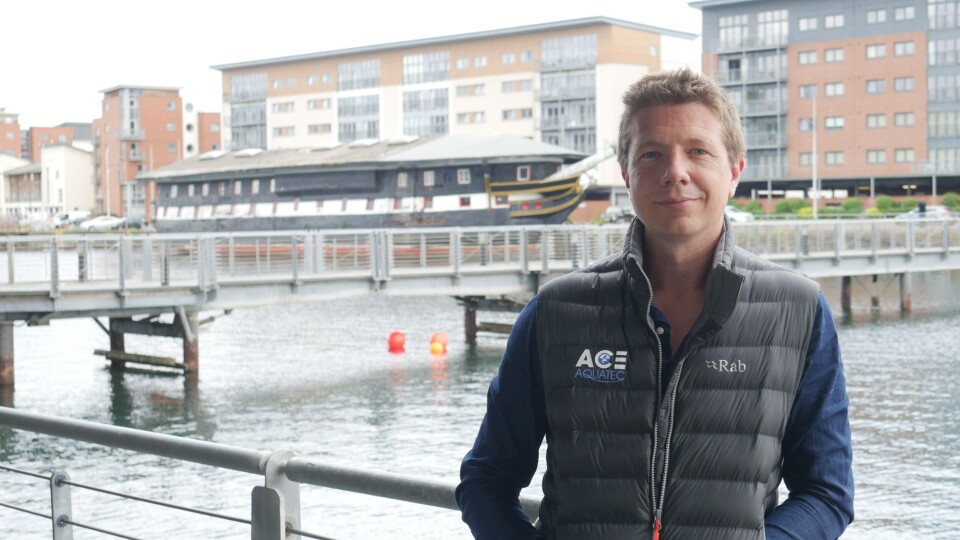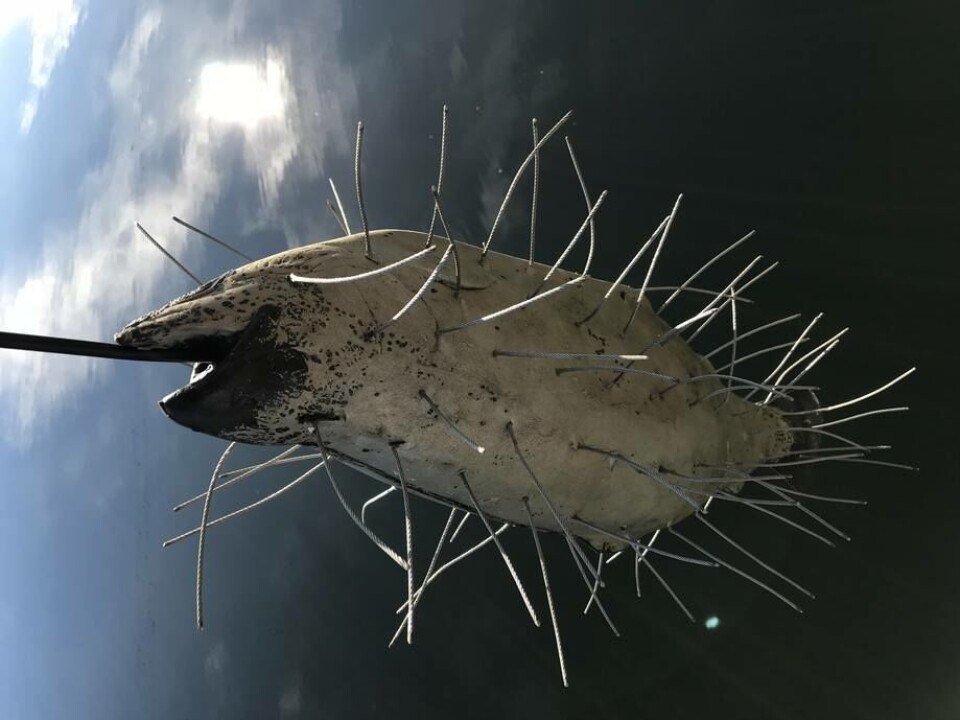
Ace Aquatec chief shortlisted for three awards
Aquaculture innovator Ace Aquatec’s chief executive Nathan Pyne-Carter has been nominated for three Director of the Year awards by the Institute of Directors Scotland.
It is the first time the Dundee company has entered the awards and Pyne-Carter admitted he was surprised the firm was short-listed in all three categories it had entered – Family Busines, Innovation and Small-Medium Business (up to £25 million turnover).
Up to four finalists are shortlisted in each category and the winner will be announced at a dinner at the Double Tree by Hilton Glasgow Central on Thursday, May 3.
Family business
Pyne-Carter said he had originally planned to enter the Innovation category but then chose to add entries for the other categories because Ace Aquatec “was in quite a good place as a company and also as a family business”.
“I thought I could probably provide quite a good take on how we’ve grown from being a small family business into something more internationally-minded. We’ve had successive re-brandings and support from Scottish Enterprise and things, so it’s quite an interesting story.
“I thought I was just hedging our bets [by entering three categories] so it’s great to be put up for three.”
Ace Aquatec’s core business is acoustic deterrent devices (ADDs) to deter seals from attacking salmon pens, but it has also had success with its humane stunner universal (HSU) which can stun fish and crustaceans while they’re still in the water. This allows a more humane method of slaughter and better meat quality, as the animals produce less of the stress hormone cortisol.

Conclusive trials
The company also supplies a 3D biomass camera and has recently begun marketing an “electric fish” which looks like a dead salmon and is placed at the bottom of a salmon cage. When a seal touches an electrode on the fish it gets an electric shock which, combined with a noise generated at the same time, teaches it to stay away from salmon cages.
“That’s only been earning income on a commercial basis for the last few months,” said Pyne-Carter.
“We’ve been doing lots of trials with Loch Duart Salmon and it’s just been very conclusive, it’s like no other system that we’ve developed before. You can turn it off and you see a site overrun with seals, and you turn it on and that’s everything back to zero again. It’s pretty amazing, and we’re shipping that internationally now.”
Remote adjustment
The company has also developed a new housing to power all of its deterrents from one unit on a cage. “The electric fish has been the foundation for taking all of our deterrent systems to the next-generation control unit that can power combinations of all of them depending on what scenario we find on the sites.”
Internet connectivity means Ace Aquatec’s equipment – often provided on a rental basis – can be adjusted remotely from Dundee, even if it’s on the other side of the world.
Pyne-Carter said the company’s intention was to double turnover year-on-year, something it will have managed again by the end of its financial year in June when it will have made revenues of more than £3 million.
Ace Aquatec’s electric fish is also on the shortlist in the Animal Welfare category of this year’s Aquaculture Awards, while Pyne-Carter is one of five individuals shortlisted for the People’s Choice award at the event at Dynamic Earth, Edinburgh on May 29.























































